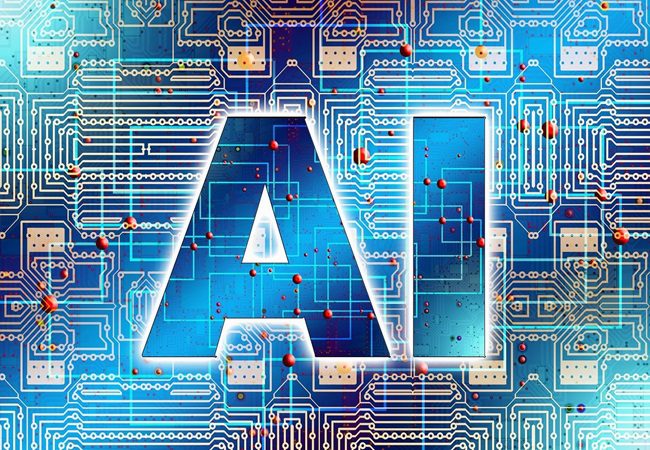Introduction:
In the realm of healthcare, the integration of Artificial Intelligence (AI) is heralding a transformative era, redefining how patient care is delivered and advancing the frontiers of medical research. This article explores the profound impact of AI in healthcare, delving into how innovative technologies are revolutionizing patient care and reshaping the landscape of medical research.
Transforming Diagnostics with AI:
One of the most impactful applications of AI in healthcare is in diagnostics. AI-driven diagnostic tools are proving to be invaluable assets, significantly improving accuracy and speed in identifying diseases. Machine Learning algorithms, a subset of AI, analyze medical images, such as X-rays and MRIs, with a level of precision that surpasses traditional diagnostic methods.
Speeding Up Disease Detection:
AI’s ability to process vast datasets swiftly enables healthcare professionals to detect diseases at earlier stages. This is particularly evident in the field of radiology, where AI algorithms assist in identifying subtle abnormalities that might be overlooked in manual examinations. Early detection, facilitated by AI, holds the potential to enhance treatment outcomes and, in some cases, save lives.
Personalized Medicine and Treatment Plans:
AI is paving the way for personalized medicine, tailoring treatment plans to individual patient characteristics. By analyzing genetic data, patient history, and other relevant factors, AI algorithms can recommend treatment options that are more likely to be effective while minimizing potential side effects. This shift towards personalized medicine represents a significant leap forward in improving patient outcomes.
Enhancing Medication Management:
AI is also playing a crucial role in medication management. Predictive analytics, powered by AI algorithms, assess patient data to predict medication adherence and potential adverse reactions. This proactive approach ensures that healthcare providers can adjust treatment plans in real-time, optimizing medication regimens for better patient compliance and overall well-being.
Virtual Health Assistants and Remote Monitoring:
The rise of virtual health assistants powered by AI is enhancing patient engagement and enabling remote monitoring. These AI-driven interfaces offer patients personalized health information, medication reminders, and even lifestyle recommendations. In tandem with wearable devices, AI facilitates real-time monitoring of vital signs, allowing healthcare professionals to intervene promptly if any anomalies are detected.
Remote Patient Monitoring:
AI in healthcare is particularly impactful in the era of telemedicine. Remote patient monitoring, fueled by AI technologies, enables healthcare providers to track patient health metrics in real-time, reducing the need for frequent in-person visits. This not only improves patient convenience but also allows for proactive intervention, preventing potential health complications.
Revolutionizing Medical Imaging:
AI’s influence extends to medical imaging, where it is revolutionizing how professionals interpret and analyze visual data. Computer vision, a field within AI, enhances the accuracy of medical imaging interpretations, leading to more precise diagnoses. AI algorithms can detect subtle abnormalities in images, aiding in the early detection of conditions ranging from tumors to cardiovascular issues.
AI and Radiomics:
Radiomics, an emerging field within medical imaging, leverages AI to extract and analyze quantitative features from medical images. This approach goes beyond visual interpretation, providing detailed insights into the characteristics of tissues and lesions. The integration of AI in radiomics holds great promise in improving diagnostic accuracy and treatment planning.
Drug Discovery and Development:
AI is catalyzing a revolution in drug discovery and development, traditionally a lengthy and resource-intensive process. Machine Learning algorithms can analyze vast datasets to identify potential drug candidates, predict their efficacy, and even anticipate potential side effects. This acceleration in the drug discovery pipeline holds the promise of bringing new treatments to market more efficiently.
Accelerated Drug Screening:
AI-driven drug screening processes can analyze large databases of compounds, predicting their potential effectiveness in treating specific diseases. This expedites the identification of promising candidates, streamlining the initial stages of drug discovery. The efficiency gains brought about by AI in drug screening contribute to the development of innovative therapies and treatments.
Enhancing Surgical Precision:
In the surgical domain, AI is enhancing precision and outcomes. Surgical robots, guided by AI algorithms, can assist surgeons in intricate procedures, offering unparalleled precision and control. AI also contributes to preoperative planning, analyzing patient data to optimize surgical approaches and minimize risks.
AI-guided Surgical Navigation:
AI’s role in surgical navigation is exemplified by its ability to analyze 3D images and guide surgeons during procedures. This technology ensures more accurate incisions, reduces the risk of complications, and enhances overall surgical outcomes. The fusion of AI and surgical techniques marks a paradigm shift in how surgeries are conducted, promoting safer and more effective interventions.
Overcoming Healthcare Challenges with Predictive Analytics:
Predictive analytics, a core component of AI, is instrumental in overcoming healthcare challenges. From predicting disease outbreaks to optimizing hospital resource allocation, AI algorithms analyze vast datasets to derive actionable insights. This proactive approach enables healthcare systems to operate more efficiently and respond effectively to emerging healthcare needs.
Forecasting Disease Outbreaks:
AI’s ability to process and analyze extensive datasets is invaluable in forecasting disease outbreaks. Machine Learning models can identify patterns in epidemiological data, providing early warnings about potential outbreaks. This foresight allows healthcare authorities to allocate resources, implement preventive measures, and curb the spread of infectious diseases.
Ethical Considerations in AI-driven Healthcare:
As AI continues to revolutionize healthcare, ethical considerations become paramount. Patient privacy, data security, and the responsible use of AI in decision-making processes are critical aspects that demand careful attention. Striking a balance between innovation and ethical considerations is essential for building trust in AI-driven healthcare systems.
Ensuring Patient Privacy:
The integration of AI in healthcare involves the analysis of vast amounts of sensitive patient data. Ensuring robust data security measures and privacy protections is imperative to maintain patient trust. Healthcare providers must adhere to stringent ethical standards, transparent data practices, and secure storage methods to safeguard patient confidentiality.
The Future Landscape of AI in Healthcare:
As AI continues to evolve, its role in healthcare is poised to expand even further. The future landscape holds promises of more advanced diagnostics, personalized treatments, and groundbreaking discoveries. The collaboration between AI and healthcare professionals is shaping a future where patient care is not only more effective but also more compassionate and tailored to individual needs.
Collaboration and Integration:
The successful integration of AI into healthcare requires collaboration between technologists, healthcare professionals, policymakers, and patients. By fostering open communication and interdisciplinary collaboration, the healthcare industry can harness the full potential of AI while addressing concerns, ensuring responsible use, and prioritizing patient-centric outcomes.
Conclusion:
AI is ushering in a new era for healthcare, bringing about a paradigm shift in patient care and reshaping the landscape of medical research. From personalized medicine to advanced diagnostics and drug discovery, the transformative impact of AI is evident across various facets of the healthcare ecosystem. As these technologies advance, a collaborative and ethical approach becomes paramount, ensuring that AI continues to elevate healthcare standards. Ultimately, this progression holds the promise of providing better outcomes for patients and significantly transforming the future of medicine.



































